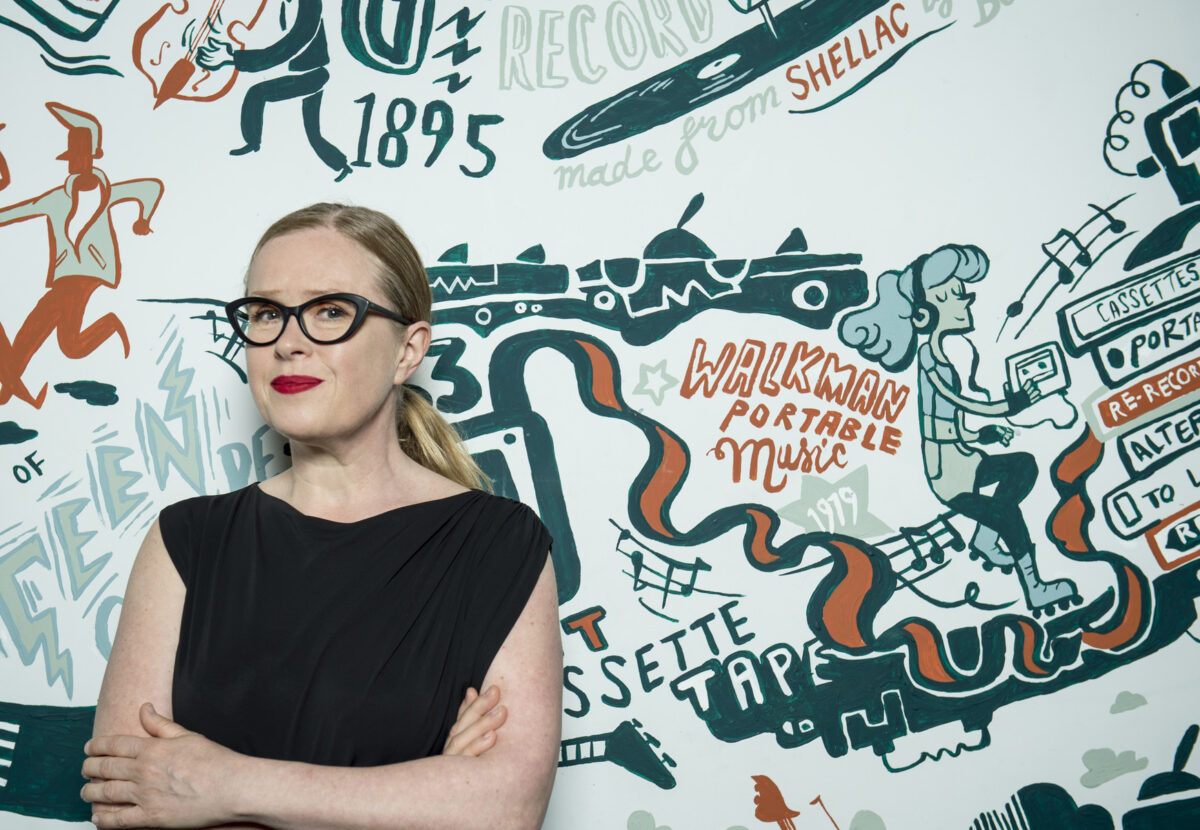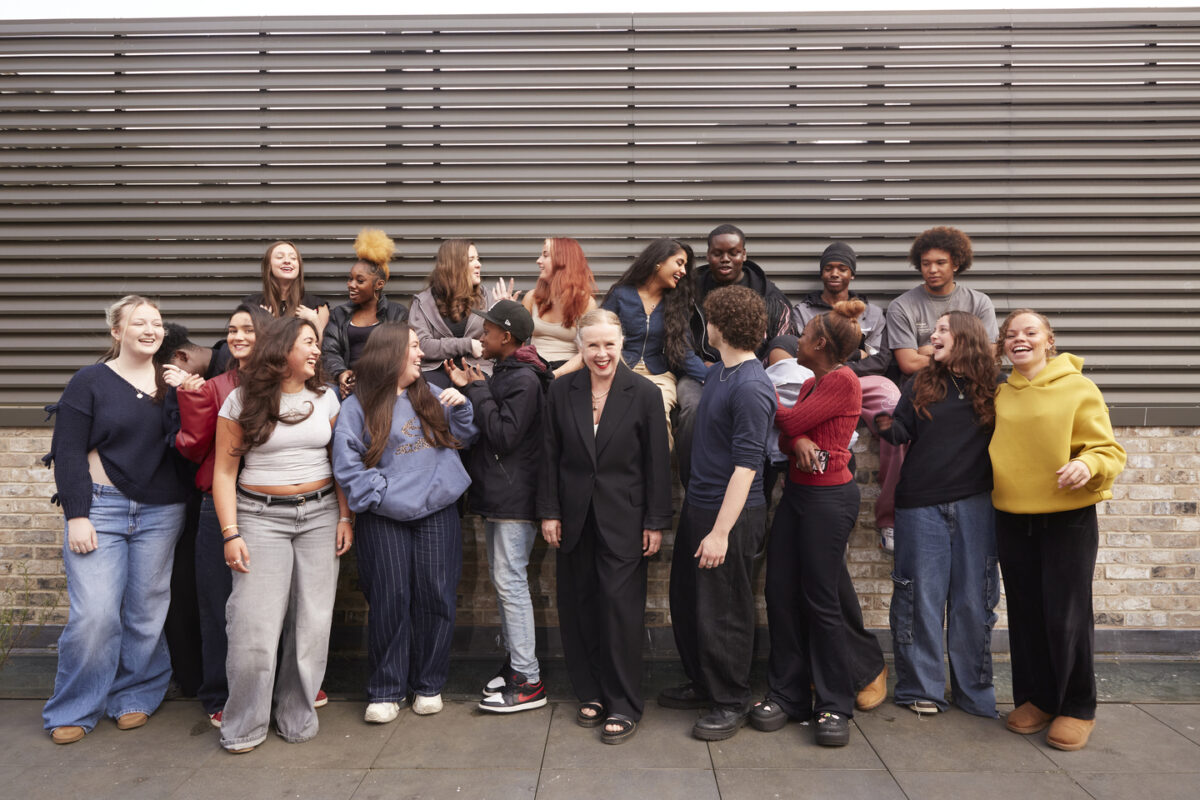Conversations: Pamela McCormick MBE

Pamela McCormick is one of the most quietly transformative figures in UK music education. Born and raised in Belfast during the Troubles, Pamela left NI at 18 and went on to forge a remarkable career across jazz, youth culture, music education and social justice. In 2000, she co-founded Urban Development (now UD) in Stratford, east London – an organisation that has since become one of the UK’s most vital talent development and music education platforms. From Labrinth and Little Simz to Skepta and Flames Collective, UD’s impact on emerging Black and working-class talent has been truly generational.
This year, Pamela was awarded an MBE in the King’s Birthday Honours for services to music education. In this exclusive interview for Music Connections, she reflects on her journey, the continued inequality in access to music careers and why Belfast still matters to her, and always will.
Hi Pamela. Firstly, congratulations on the MBE. That’s an incredible honour. I suppose based on everything that you’ve done I’m sure you probably never thought this sort of thing would happen because, well, you’re too busy doing the hard work?
Exactly. I suppose I’ve done it for quite a long time. It’s been 25 years since we set up the business and I guess there’ve been a couple of big milestones recently. The creation of Talent House – that was probably seven years of work all told. The original idea, getting the original champions, being the Arts Council and the Mayor’s Office, then raising the money. The design work – it’s seven years and probably four or five of action once we had enough money to start.
And then one of the projects called Flames Collective – it’s a group of highly talented young people aged 14 to 21 who are great singer-songwriters. They rehearse and record and perform together. They’ve toured with RAYE for the last 18 months. That’s been a big breakthrough, and I guess it shows what can happen with young people when you join up education, talent development and industry connections. So yes, too busy working definitely, but I guess I’m aware of a couple of big moments that might have tipped over a little into people’s awareness, perhaps.
Has investing in and incentivising young people always been a fulcrum for you in your work in these communities?
Yeah. I mean, I guess I’ve been on a bit of a journey. When I left Belfast at 18 to go to university, I’ve not really gone back to live, only occasionally for bits of work but mainly just to see family. I worked with quite big jazz musicians for a while in France. So there was the Edinburgh Festival and promoting jazz in Edinburgh, and then there was that kind of international touring thing. I met Courtney Pine with a group of hip-hop musicians in 1996, and I was in Paris at the time. I felt I wanted to be in London for the first time in my entire life. I think it was just about a bigger scene, a really creative scene around jazz meeting hip-hop – exciting new talent. That was a key moment for me.
Then, I suppose the politics of it – the kind of values I have. Being brought up in Belfast in the 70s, you get a sense of the difficulties at play. Sometimes it’s a little bit to do with lack of opportunity and socio-economic issues, and I kind of spotted that again when I arrived in London, but this time it was about racism. I guess I realised I’ve got personal values around trying to make an impact, and I was a little bit inspired by what I saw as a child – the difference that education and aspiration can make.
Even before that, do you remember any formative cultural or musical experiences growing up? Anything that lit the spark?
Probably not really, in all honesty. It was a bit of a late development for me – a slow burn. I pivoted in school from being quite good at science and maths to studying French. That was a bit of a difference. I probably wanted a different type of experience, perhaps one in the big world. I knew I wanted to go to university outside of Northern Ireland. It wasn’t a very nice place then. I left in 1982.
The music thing happened because I worked in bars and stuff quite a lot when I was at university. Then I took on a kind of admin/secretarial job when I finished my course. That’s where I feel the Northern Ireland experience may have impacted me. When I left university, I saw myself working as a secretary, not a lawyer or working in the EU. That’s where I landed. That was maybe to do with me holding back, but also maybe a victim of the circumstances I grew up in.
I did that kind of job for two years, then viscerally knew it was not for me. I took a year out when I was 25 and went to live in France. Before I did so, I worked in the Edinburgh Festival, and that was the move into culture. That was the move into, “Actually, I never thought this career could be for me – but I really bloody love being involved in stuff that relates to putting great things on stage and audiences.”

McCormick MBE with the Flames Collective ahead of their performance at Little Simz’s Meltdown Festival. Photo by Vincent Dolman.
That does sound like a pivotal moment in you journey. What do you think makes UD such a powerful and enduring model?
I think we’ve tried to create a progression route in microcosm that probably should exist for every young person who wants to get involved in music. It makes it hard for us, because we’re trying to operate at schools, at the youth level, at the kind of National Youth Choir (which is what Flames Collective is), artist development, release into the music industry, really.
Politically, for me, those structures exist for classical music but not necessarily for pop and Black music. This stuff needs structured development. And the other significant thing – when we started in 1997, I was working with those hip-hop musicians who had met Courtney Pine. I was initially helping them with their projects while working elsewhere. Then that all grew into UD. Hip-hop was “community music” then. We got a little bit of money from local government and London Arts. Look at it now: it’s a global phenomenon.
So I guess the journey of UD has tracked against the journey of Black music in the last 25 years, from being community music to being the music industry. Our partnerships have evolved through that lifetime as we’ve kept building the business and wanting to grow and be better.
You’ve consistently championed roles behind the mic as much as in front. Why is it vital that we broaden the idea of what a music career looks like?
Because it’s really tough to have a sustained career as a musician. You want to give everyone the chance to break through those barriers if they want it. But only a small number of people will. Degrees aren’t there like they used to be – it used to be just about being signed. Now it’s about building your own independent thing. There are other options.
But not everyone can sustain a career for 25–30 years, have a family and all the things a normal person likes, through just being an artist. So it’s about channelling that creativity into other areas of the business. From our point of view, we’ve been quite focused on the creative development side – that non-classical music needs the same level of support.
Equally, the music industry looks to us to deliver different kinds of young people into employment. Not all of our work does that – some projects are about developing executive talent, like Industry Takeover. But the people who’ve gone on from UD to have big jobs often worked with us as interns. That depth work actually makes the difference – making people work-ready for the next step.
You’ve advocated for Black music styles to be included in the school curriculum. What progress have you seen there – and what still needs to change?
Quite a lot needs to change. There are advocacy organisations – I had a meeting with Mission 44 (Lewis Hamilton’s charity) the other day and they’re trying to advocate for curriculum change around STEM in particular. So there is advocacy. But then there’s resourcing, which is hugely challenging.
I think this Labour government is trying to make change happen, but the economy and other constraints will be the biggest challenge. I was hoping to see more from the National Music Plan and changes to the configuration of the Music Hubs. I’m not quite sure those changes have impacted yet.
Where we’ve worked in schools, we’ve raised the money ourselves. The big challenge is: how do you change how resources are allocated from within core budgets? That’s above my pay grade, somehow.
What advice would you give to young creatives in NI who want to build a music career today?
I hugely rate some people who are already in Belfast – Charlotte Dryden at the Oh Yeah Centre, and James Ayo from Hotbox Entertainment. That’s how it starts – change makers and leaders. I’d urge any young creative to get involved and be part of those programmes. They’re in all the networks I’m in now too. I’ve talked to Charlotte and James, and anything we can do on a specialist level to support, we can. But it builds from the grassroots up.
Finally, now that the incredible milestone of an MBE has been hit, what are you most excited to build upon next?
I’d love to have every project we run have the same level of profile as Flames Collective. That’s what we’re working on. We’ve got four pillars: Flames, the Incubator artist development programme, Industry Takeover and our community engagement programme in the building. That’s the focus this year and developing a satellite version of Flames Collective somewhere outside of London. We’re also working with a regional partner on a version of Industry Takeover the conference.
Longer term, it’s about bringing in different types of money – brand partnerships, where we can build a team of young creatives who can respond to live briefs. I’m inspired by models like Livity Magazine back in the day and REC Philly in Philadelphia. They run a membership model – young creatives pitch for work with brands. That would be an amazing development.
Keep up to date with all things UD over on their official website.
Lead photo by Chris Lopez